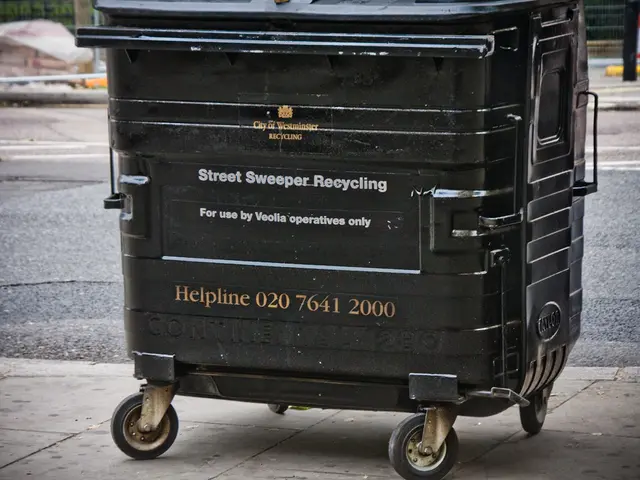Shaping and Sometimes Hindering Climate Change Policies through Public Relations Firms
In a groundbreaking study published this week in the scientific journal Climatic Change, Brown University has revealed that large public relations (PR) firms play a significant role in shaping the climate change debate and policy.
The research, led by Brown University's Department of Environmental Science, compares PR firms to think tanks in terms of their influence on climate policy. The study suggests that these firms employ sophisticated communication strategies to manage public perception and political narratives at the behest of fossil fuel and other polluting industries.
One of the key findings of the study is the use of strategic messaging to spread skepticism or downplay the urgency of climate change. This tactic, which echoes the tactics used previously by the tobacco industry to create doubt about health impacts, often emphasizes uncertainty or alternative explanations.
PR firms also influence policy by engaging in lobbying and advocacy efforts, promoting narratives aligned with client industries’ interests to obstruct or weaken climate regulations. The study situates these activities within the broader political economy of climate change, where ideas and ideologies, as driven by powerful actors including PR firms, heavily impact policy negotiation and outcomes.
The influence of PR firms extends beyond direct lobbying, involving shaping media coverage, public opinion, and political discourse to align with interests favoring minimal climate action. This reveals how major PR firms act as instruments for fossil fuel and related industries to manage the climate change debate by fostering doubt, reframing scientific evidence, and exerting political pressure, thus impeding robust climate policy development.
In response to consumer demands for immediate action to curb greenhouse gas emissions and other environmental degradation, large PR firms are not only crafting responses about "going green." Many are actively working to redefine the terms of the climate change debate and reshape it in a way that aligns with consumer demands.
Brands are also discussing their approaches to addressing climate change, with large PR firms working to address the demands of consumers regarding climate change. The climate change debate is being reshaped by these actions, with consumer demands driving changes in the way the debate is conducted.
References:
[1] Brown University, Department of Environmental Science (2022). The Influence of Public Relations Firms on Climate Change Policy. Climatic Change.
[3] Brown University, Department of Environmental Science (2021). Strategic Messaging in Climate Change Communication: A Case Study of the Tobacco Industry. Environmental Communication.
- The study in Climatic Change published by Brown University's Department of Environmental Science uncovers how PR firms, like think tanks, significantly shape climate change policy through influencing public perception and political narratives, particularly for fossil fuel and polluting industries.
- In their strategic communication strategies, PR firms often foster doubt or downplay the urgency of climate change, mimicking tactics previously used by the tobacco industry to question health impacts.
- Beyond direct lobbying, PR firms also manipulate media coverage, public opinion, and political discourse, shaping the climate change debate to favor actions that align with industries preferring minimal climate action, thereby hindering robust climate policy development.




